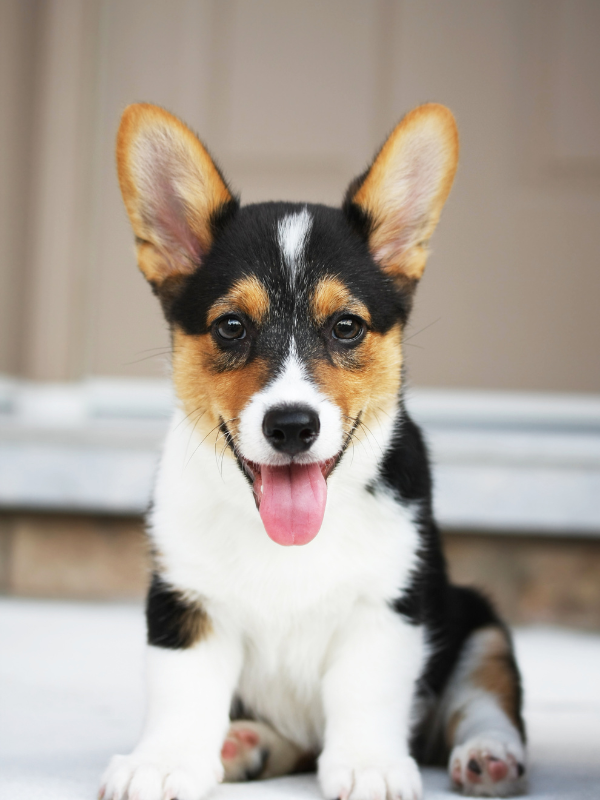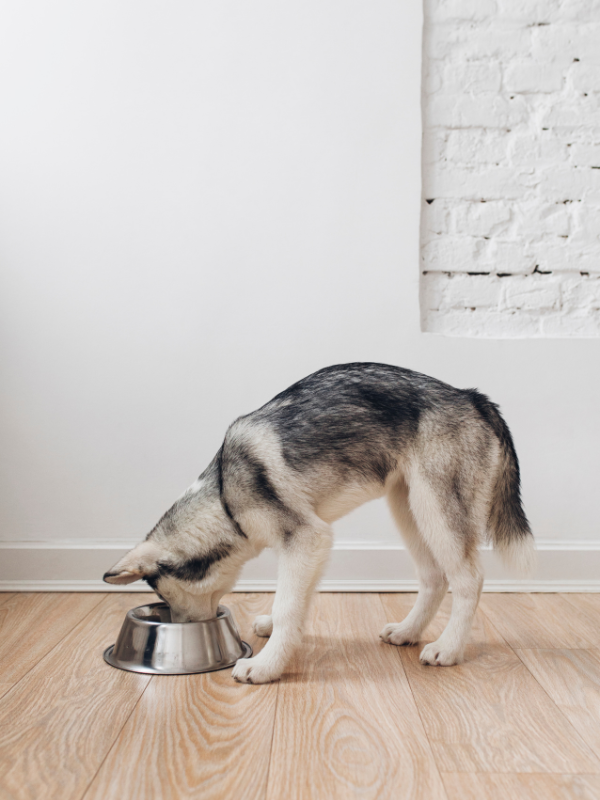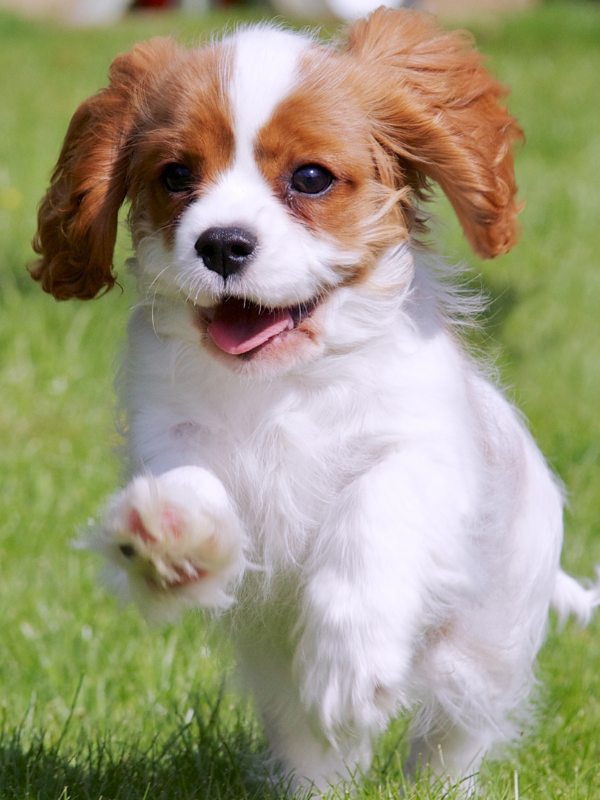737-215-3211

Navigating the Journey of Puppyhood: A Comprehensive Guide to What to Expect During Each Stage
Puppies. Those little bundles of joy that have the uncanny ability to turn even the grumpiest frown upside down. Welcoming a puppy into your life can be an incredibly rewarding experience. However, it can also be a time of many questions and uncertainties, especially if you're a first-time pet parent. This comprehensive guide is designed to take you through the different puppy stages, preparing you for the expected (and unexpected) during this wonderful journey.
Understanding Puppy Growth and Development: An Overview
Like human babies, puppies go through a rapid phase of growth and development, each stage carrying its unique characteristics and challenges. It is crucial for pet parents to understand these stages, as it equips them with the tools necessary to provide the best care for their furry little companions.
#1 The Neonatal Period (0-2 weeks)
The first two weeks of a puppy’s life, known as the neonatal period, is a time of immense dependency. Puppies are born deaf, blind, and toothless, relying solely on their mother for warmth and nourishment. Despite their lack of sensory perception, puppies in this stage can touch and taste. During these initial two weeks, puppies spend most of their time sleeping or nursing, activities crucial for their development and growth. At this stage, the puppy’s focus is on building body mass and growing physically.
#2 The Transitional Period (2-4 weeks)
Around the end of the second week, puppies enter the transitional period, marking several significant milestones in their development. This period is characterized by the opening of the puppies' eyes and ears, granting them access to sight and sound for the first time. The eruption of their baby teeth occurs, and puppies begin to stand, walk, and wag their tails. They also start to become aware of their surroundings and their littermates, setting the stage for future social interactions.
#3 The Socialization Period (4-12 weeks)
The socialization period, extending from the fourth week to the twelfth, is when puppies start to learn about the world around them. Their interaction with humans, other animals, and their environment during this period significantly influences their future behavior. This phase is the optimal time to introduce your puppy to a variety of people, animals, sounds, and experiences in a positive and controlled way. House training can begin during this period, and puppies should be gradually weaned off mother’s milk and introduced to solid food.
#4 The Juvenile Period (3-6 months)
As puppies move into the juvenile period, they become more independent and inquisitive. They will start to test their boundaries and learn about their position in the social hierarchy. This stage is also when the fear response begins to develop, so it's important to continue positive exposure to a variety of experiences and situations to build confidence. During this period, your puppy will also lose their baby teeth, and the permanent ones will start to appear.
#5 The Adolescence Period (6-18 months)
Welcome to the canine equivalent of the teenage years! Just like human teens, adolescent puppies may display challenging behavior as they navigate through this phase of hormonal changes and sexual maturity. This stage requires patience and consistent training. Continue reinforcing positive behaviors and correcting unwanted ones during this period. This is also the time when females may begin their first heat cycle if they haven't been spayed.
#6 The Adulthood Stage (18 months and beyond)
As puppies transition into adulthood, their behavior and temperament will typically become more stable. However, this doesn't mean that training should stop. Continuing to reinforce positive behaviors and provide mental stimulation is important for maintaining a well-behaved and happy adult dog. In this phase, your puppy will have reached their adult size, and their personality will have formed.
Nutrition Through Puppyhood
Feeding your puppy correctly is crucial to their overall health and well-being. Puppies require a diet that’s rich in proteins and fats to support their rapid growth and high energy levels. It's typically recommended to feed them specially formulated puppy food, which contains the necessary nutrients they need. The frequency and quantity of feeding will change as they progress from one developmental stage to another.
Training and Socialization
Training and socializing your puppy should start as soon as they arrive at your home. Basic training like housebreaking, leash training, and basic command training can begin early. Socialization, or the process of introducing your puppy to a variety of experiences, people, and other animals, is crucial in molding their behavior. It's important to make every new experience positive to ensure they don’t develop fear or aggression later in life.
Health Checks and Vaccinations
Regular health checks and a proper vaccination schedule are crucial for a puppy's health. Your vet will provide a vaccination schedule for common diseases like distemper, parvovirus, and rabies. Your puppy will also need regular check-ups, deworming, and flea and tick prevention.
Understanding Puppy Behavior
Deciphering puppy behavior can be like trying to solve a complex puzzle. Understanding why puppies act the way they do can help you cater to their needs and address any problematic behavior early. Chewing, for example, is a normal behavior in puppies, especially during teething. However, destructive chewing can be a sign of boredom or anxiety.
Choosing the Right Toys and Accessories for Your Puppy
Toys and accessories can play a significant role in a puppy's development. Toys provide mental stimulation, promote exercise, and help alleviate the discomfort of teething. When choosing toys, make sure they are safe and suitable for your puppy's size and stage of development. Collars, harnesses, and leashes should be comfortable and secure.
Common Puppy Problems and How to Deal With Them
Puppies can sometimes develop issues, like chewing on furniture or excessive barking. It's important to address these behaviors early and provide suitable outlets for their energy. It's always best to reward positive behavior and provide consistent training to overcome these challenges.
When to Seek Professional Help
While most puppy behavior is normal and a part of their development, some behaviors or health concerns might require professional help. Excessive aggression, fear, or anxiety, unexplained weight loss, or persistent vomiting or diarrhea are signs that you should consult a vet or a professional trainer.
Creating a Safe Environment for Your Puppy
Puppies are naturally curious and love to explore their surroundings, making it important to create a safe environment for them. Puppy-proofing your home includes removing small objects that can be swallowed, securing loose wires, installing gates to prevent access to dangerous areas, and using pet-friendly cleaning products.
FAQs
What should I feed my puppy?
The diet of a puppy should be balanced and nutritious to support their rapid growth and development. It is usually recommended to feed them specially formulated puppy food, as it contains the right nutrients needed at this stage.
How often should I take my puppy to the vet?
Regular vet check-ups are crucial during the puppy stage. In the first year, puppies usually visit the vet several times for vaccinations and routine health checks.
When should I start training my puppy?
You can start basic training when your puppy is around eight weeks old. However, remember to keep training sessions short and enjoyable, as puppies have a short attention span.
How can I socialize my puppy?
Socializing a puppy involves introducing them to a variety of people, animals, environments, and experiences. Start this process after they have had their vaccinations to protect them from potential diseases.
What is the most challenging puppy stage?
Each puppy stage comes with its challenges, but many pet parents find the adolescence period (6-18 months) the most challenging. It is when puppies are high in energy and start to test their boundaries.
How can I make my home safe for my puppy?
Making your home safe for a puppy involves removing any hazardous items they could chew on or swallow, securing loose wires, and installing baby gates to restrict access to certain areas of the home.
Conclusion
Understanding what to expect during the puppy stages can equip you as a pet parent to provide the best care for your new furry friend. Remember, every puppy is unique, and they develop at their own pace. Be patient, enjoy the process, and soon you'll have a loyal companion that will bring joy and happiness into your life.





Leave a comment